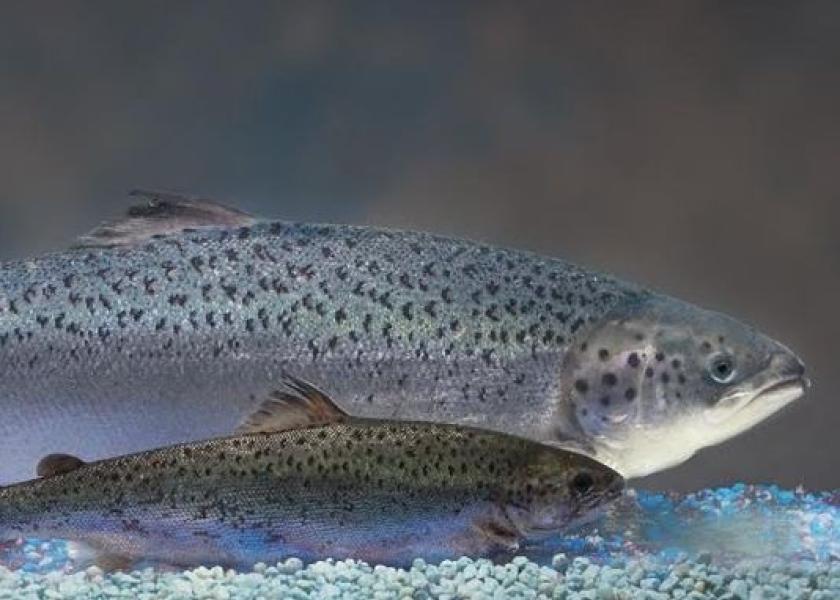FDA Opens the Dam for GE Salmon

More than 20 years ago, a company called AquaBounty Technologies developed the AquAdvantage salmon, a genetically modified variety of Atlantic salmon with a single gene from a Chinook salmon spliced into its genome and accounting for a total of about one ten-thousandth of its DNA. This fish grows dramatically faster than other Atlantic salmon, reaching market size in half the time with 20 percent better feed efficiency and 5 percent better nitrogen retention.
Regulatory barriers and an abundance of caution have, however, prevented commercial production and availability of the salmon in the United States.
The process has been slow, but FDA announced on March 8, 2019, a new step that will make the salmon available to U.S consumers.
In April 2018, the company gained FDA approval of a new animal drug application (NADA) for the company’s aquaculture facility near Albany, Indiana. According to the FDA, genetically engineered animals are regulated under the new animal drug provisions of the Federal Food, Drug, and Cosmetic Act (FD&C Act) because an rDNA construct that is intended to affect the structure or function of the body of the resulting animal meets the definition of a drug. Approval of the facility did not mean though, that the fast-growing salmon would soon appear in U.S. retail cases or on restaurant menus. The FDA announcement noted that while the Indiana facility was approved for production, the company was prohibited from importing the eggs necessary for producing genetically engineered (GE) salmon at the facility because of a requirement in FDA’s appropriations law.
With the new decision, FDA deactivated a 2016 import alert that prevented GE salmon from entering the U.S. The FDA’s approval of the application related to AquAdvantage Salmon followed a comprehensive analysis of the scientific evidence, which determined that the GE Atlantic salmon met the statutory requirements for safety and effectiveness under the Federal Food, Drug, and Cosmetic Act. However, in 2016, Congress directed the FDA not to allow into commerce any food that contains GE salmon until it issued final labeling guidelines for informing consumers of the GE salmon content in the food. The FDA complied with this requirement by implementing an import alert in 2016 that prevented GE salmon from entering the U.S.
Studies on 14 generations of the AquAdvantage salmon led to the FDA in 2010 determining the fish is an Atlantic salmon, is as safe to consume as any other Atlantic salmon and represents no significant risk to the environment under conditions of use in the application for approval. Those conditions for use include growing the fish only in a FDA-approved, physically contained, fresh-water culture facility and maintaining a population of only female fish for food production, to avoid any crossbreeding with wild populations
With the deactivation of the import alert, AquAdvantage Salmon eggs can now be imported to the company’s contained grow-out facility in Indiana to be raised into salmon for food. FDA has determined the fish is safe to eat, the genetic construct added to the fish’s genome is safe for the animal, and the manufacturer’s claim that it reaches a growth marker important to the aquaculture industry more rapidly than its non-GE farm-raised Atlantic salmon counterpart is confirmed.
Read the full notice from the FDA.
For more on the AquaAdvantage salmon and other issues related to GMO foods, see these articles on BovineVetOnline.com
FDA Approves Facility for GMO Salmon
Editing for Health and Fitness
FDA Announces Biotechnology Innovation Action Plan
CAST: Excessive Barriers Stifle Biotech Progress







